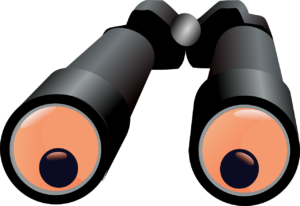Note to the Surveillance State: We’re Watching, Too.

It seems that Congress is worried about China spying on American citizens – particularly via the vastly popular TikTok – so they’re moving to pass the RESTRICT Act (“Restricting the Emergence of Security Threats that Risk Information and Communications Technology Act,” or Senate Bill 686), which would “authorize the Secretary of Commerce (which is not an elected position) to review and prohibit certain transactions between persons in the United States and foreign adversaries, and for other purposes.”
Pretty broad, eh?
Critics are (rightfully) calling it the Patriot Act for the Digital Age. FYI, the Patriot Act was enacted after 9/11/2001 to ‘protect’ Americans, but it was basically a ploy to grant the federal government wide-reaching surveillance powers to spy on US citizens and not long afterwards, enter the Age of Social, which made it oh, so much easier for the government to spy – and censor. And even propagandize.




